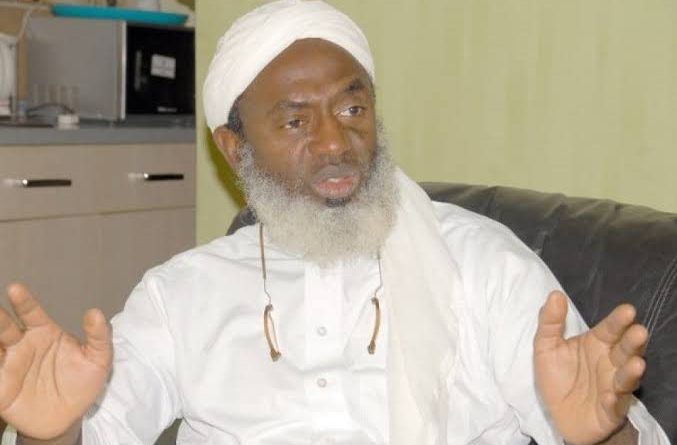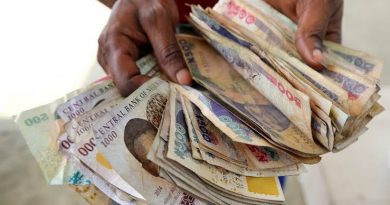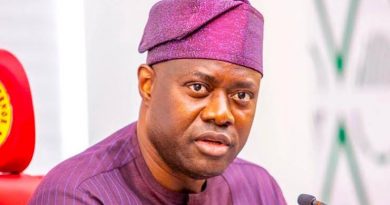Gumi, National Security and the Implications of Media Attention
Gumi, National Security and the Implications of Media Attention
By Alabidun Shuaib AbdulRahman
In Nigeria’s protracted struggle with banditry, kidnapping, and insurgency, Sheikh Ahmad Abubakar Gumi has occupied a polarising space: simultaneously a respected Islamic scholar, a self-appointed mediator, and a frequent commentator in the national media. But as Gumi’s profile has grown, so too have concerns about the unintended or possibly deliberate consequences of elevating his voice.
His persistent presence comes at a cost: legitimising non-state armed actors, undermining state institutions, and, alarmingly, projecting a version of peace-making that risks normalising criminal violence. The events of May 2025, when Saudi authorities denied him entry into Medina for Hajj despite a valid visa, offer a sharp reminder that his influence is contested even beyond Nigeria, and public discourse must scrutinise it more carefully.
Gumi’s entrée into the national conversation rests on his dual credibility: he is both a former army captain and an Islamic scholar, a combination that lends him moral authority and access. He repeatedly depicts himself as a bridge between the Nigerian state and armed bandits, arguing that military force alone is no longer sufficient.
READ ALSO: NILDS DG Tasks IEDPU on Rebuilding Love Among Ilorin Indigenes
On 6 October 2024, in an interview reported by the International Centre for Investigative Reporting (ICIR), he declared: “Today, 90 per cent of our intelligence is garbage. What we have left is just about 10 per cent.” By publicly decrying the quality of intelligence, he undermines public confidence in Nigeria’s security architecture not merely offering critique, but positioning himself as someone whose moral insight fills a gaping institutional void.
He went further in that same interview, defending his deep access to bandit hideouts by insisting he always travels with state officials: “I have never been to any den of these people without officials … I go with the police because one cannot go alone.” This claim is double-edged. On the surface, it suggests cooperation with state institutions, but it also raises serious questions about the role of an unofficial, non-state intermediary in matters that typically fall within the purview of intelligence services and the military.
Gumi’s central argument revolves around negotiation. He frequently calls for dialogues and amnesty, suggesting that social and economic neglect, not ideology alone, drives banditry. But his approach tends to frame violent criminals as aggrieved moral actors rather than lawbreakers. By giving them a quasi‑political status as if they merit a seat at the negotiation table, he risks romanticising kidnapping and terror as merely “a reaction to deprivation.”
In his public interventions, he warns that an overemphasis on force may backfire, driving some bandits toward radicalisation. Yet this very narrative can be weaponised. When militants see themselves as wronged and mediated by a respected cleric, the notion of “negotiation” becomes a path to legitimacy rather than surrender.
These concerns are not theoretical. The security picture in Nigeria remains dire. According to the 2025 Global Terrorism Index, Nigeria recorded 565 terrorism-related deaths in 2024, up from 533 in 2023, placing the country sixth globally with a score of 7.658. The report highlights that the Islamic State in the Sahel (IS‑Sahel) carried out 16 attacks in Nigeria in 2024. These are not distant or abstract threats — they are real, rapidly evolving, and increasingly sophisticated. Amid this, Gumi’s message of negotiation may sound conciliatory, but it risks diluting the urgency of counterterrorism and deflecting pressure from strengthening state institutions.
Worse, by framing himself as the only viable interlocutor, Gumi may inadvertently weaken public trust in the military and intelligence services. If the populace is encouraged to believe that official agencies are fundamentally flawed, that “90 percent” of their intelligence is worthless, then his interventions risk replacing state authority with a parallel, informal alternative. That is perilous in a democracy where violence must be constrained by transparent, accountable institutions, not individual charisma.
Compounding these concerns, Gumi’s deportation from Saudi Arabia in May 2025 highlights that even foreign powers question his role. According to the Vanguard Newspapers, he was denied entry into Medina despite holding a visa. The Guardian reported that he publicly stated on his Facebook page that “for some obvious reasons — my views about world politics, the Saudi authorities are uncomfortable about my presence … even though they have granted me a visa.”
In a statement covered by PRNigeria, he echoed that sentiment: “the Saudi authorities are uncomfortable about my presence … because of my views on world politics.” According to Premium Times, he was part of a Nigerian delegation sponsored by the National Hajj Commission of Nigeria, yet was turned back by Saudi immigration officials upon arrival.
This development carries symbolic weight. A major Islamic country refused him entry not because of procedural oversight, but apparently because of ideological unease. The fact that Saudi Arabia, which presides over Islam’s holiest rites, barred him suggests that his influence is not merely spiritual; it is perceived as political and potentially disruptive. From a media-perspective, that should raise alarms. If a country like Saudi Arabia, deeply attuned to global Islamic discourse, regards him as a liability, why should Nigerian media continue to treat him purely as a peacemaker?
Moreover, his deportation recontextualises his domestic credibility. He claims moral authority born of negotiating in the forest, yet his rejection by Saudi immigration projects that his theological legitimacy is contested abroad. If his presence is deemed “uncomfortable” by conservative religious gatekeepers, then domestic coverage must interrogate what exactly he stands for, rather than granting him uncritical amplification.
Part of the problem lies in how the media portrays him. Often framed as the lone compassionate voice urging dialogue, his complex reality, as someone with ideological reach, political commentary, and informal security brokerage, is underreported.
Journalists must resist treating him as simply a “bridge man” and instead ask harder questions: What outcomes have his interventions produced? How many hostages has he secured release for? How many disarmed bandits has he helped return to society? These are not just moral questions but matters of public policy and security accountability. Without that scrutiny, his narrative risks overshadowing the very institutions that are constitutionally mandated to provide security.
Beyond accountability, the media must also centre the voices of victims. In Gumi’s discourse, bandits are portrayed as victims of neglect; yet the thousands of Nigerians who have suffered kidnapping, terrorism, and displacement rarely feature in his mediated narrative. The media must ensure that reconciliation does not eclipse justice: victims’ trauma, their demand for justice, and their right to a secure society must remain core to any public conversation. Otherwise, coverage risks valorising a peace built on negotiation without consequence, rather than on accountability, deterrence, and institutional strengthening.
It is true that dialogue and community engagement are important tools in conflict resolution. But Gumi’s approach should not become synonymous with peace. By allowing him to dominate public debate unchecked, the media risks endorsing a peace that lacks democratic legitimacy. He is not a government‑appointed envoy; he acts on his own authority. That distinction matters urgently. The credibility he commands must be matched by responsibility, transparency, and a willingness to submit to public accountability.
Gumi’s exclusion from the 2025 Hajj is a pointer that, despite his domestic influence, his ideas are contested at the highest levels of the Muslim world. It suggests that his ideological reach, far from benign, may be unsettling to states deeply invested in religious orthodoxy and geopolitical stability. For Nigerian media outlets both local and national, this signals a need for recalibration. His voice should be part of the discourse, but not its centrepiece; his interventions merit coverage, but not uncritical deification.
In sum, Sheikh Ahmad Gumi’s repeated media spotlight poses a strategic and moral dilemma. His critique of Nigeria’s intelligence architecture, delivered in moral tones, may resonate with citizens frustrated by insecurity but it also undermines institutional confidence and creates a parallel narrative of justice.
The media must rethink how it covers Gumi: not to silence him, but to demand rigorous accountability, data‑driven analysis, and a balanced framing that does not sideline victims or state legitimacy.
Alabidun is a media practitioner and can be reached via alabidungoldenson@gmail.com




